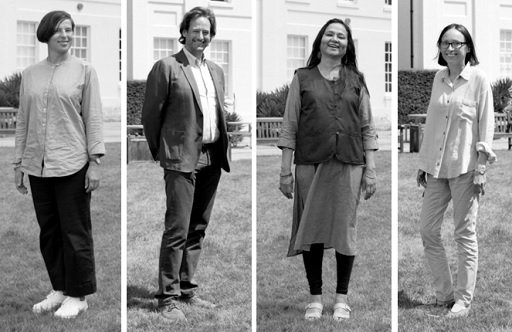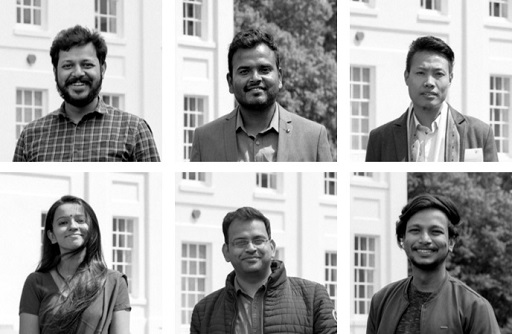Use 'Print preview' to check the number of pages and printer settings.
Print functionality varies between browsers.
Printable page generated Tuesday, 3 February 2026, 10:22 PM
Summary and course guide
Why study this course?
Empowering methodologies in organisational research will introduce you to how social science and organisational researchers understand and engage with the concept of empowerment. The course will also enable you to reflect on how you can design and carry out research that is experienced as more empowering by those who participate in it, and by researchers themselves. A key purpose of the course is to highlight the importance of power relations in research practice, and shaping how knowledge is produced. This includes asymmetrical power relationships between researcher(s) who seek to extract data from a particular social setting and research participant(s) who are cultural insiders and control possibilities for access. The course therefore seeks to draw attention to the ethical and political importance of acknowledging and developing methodologies that acknowledge and try to address these power asymmetries in organisational research.
The course is about empowering research as a way of thinking about your own ethical values and the purpose of doing organisational research. This includes thinking about empowerment as a way of reducing inequalities, enhancing social justice and addressing the complex organisational challenges that we face in the world today. However, the course does not make detailed methodological prescriptions. Instead, it invites you to reflect – conceptually and practically - on what the concept of empowering methodologies means.
You may be doing research in a context where there is little support or encouragement offered to you in exploring alternatives to the dominant positivist research paradigm. In taking this course, you will be able to connect with other researchers who may be similarly isolated or marginalised. Through this, you will be able to access a global community of researchers who are interested in making and maintaining spaces for empowering research, sometimes in the face of political pressures to the contrary.
Who is the course intended for?
The course is for anyone who is interested in doing organisational research in ways that are more empowering for research participants and researchers. It is likely to be of interest to PhD, DBA and Masters students who are doing a research project or dissertation in management, or studying organisations in other social science disciplines.
The course is authored by a team including management and organisational studies researchers at The Open University and the University of Delhi (India) and includes contributions from researchers in other social science disciplines, such as sociology and media studies. Some contributors to this course have extensive experience of doing management and organisational research in India, the UK and the rest of the world, while others are early career researchers. By involving researchers with varying degrees of expertise and experience, who will share their research practices, it is envisaged that you will be able to learn about the messy, lived experience of doing empowering research.
The development of this course was enabled by project funding from the UK-India Education Research Initiative (UKIERI).
Course structure
This online course will take you approximately ten hours of core study time to complete. You can take a break at any point and come back to it.
There are eight sections in the course, plus a concluding section where you reflect on what you have learned and how you can put your learning into practice. You will undertake a range of learning activities, including watching videos, reading online text and accessing offline materials.
The course includes a film focus feature that enables you to learn from experienced researchers who will discuss a diverse range of creative, qualitative methods and methodologies that have been used to try to redress power inequalities in social scientific and organisational research.
Throughout the course you will find stories from the field that are based on Indian research students’ experiences of doing qualitative research with participants who are marginalised, oppressed or exploited. The students use video, photographic and research diaries to reflect on how they engaged with research participants and gathered data, and to reflect on how these experiences led them to question or re-evaluate their understandings of ‘good’ or ‘rigorous’ research.
You will be invited to keep a learning diary as you complete the course. Make sure that you save all of your responses after you write them. At the end of the course you will be able to export your learning diary responses in a PDF document as a record of your learning on the course by clicking on ‘Download your answers for the documents on this course’ in the left-hand column of this website.
Throughout this course you will find photographs of scenes of everyday organisational life and work in India. These aim to complement the text and offer context. By seeing such scenes, you should be able to relate the theoretical concepts and practical ideas for doing empowering research to the everyday, and situate your understandings in either the Indian context or another context that you are more familiar with.
By the end of the course you will have an understanding of empowering methodologies in organisational research and an appreciation of how these ideas may be related to your own research.
Having completed the course you will be able to obtain a
How to gain a Statement of Participation
To achieve a Statement of Participation for studying this course you will need to be enrolled on the course and meet the following criteria:
- Read each section of the course material
When you have successfully achieved the completion criteria you will receive an email notification that your statement has been awarded and it will appear in the achievements area in your profile. Please note it can take up to 24 hours for a statement to be issued.
Authors

Emma Bell is a Professor of Management and Organisation Studies at The Open University Business School. Her research seeks to understand how meaning is generated, disseminated and contested in ways that are shaped by systems of power and control within the context of organisations. Her work has been published in a range of journals, including Academy of Management Learning & Education, British Journal of Management, Human Relations, International Journal of Management Reviews, and Organization. She has also published several books, including Reading Management and Organization in Film (2008), Business Research Methods (2018, Oxford University Press, with Alan Bryman and Bill Harley) and A Very Short, Fairly Interesting and Reasonably Cheap Book about Management Research (2013, Sage, with Richard Thorpe). She is a co-editor of the Routledge Companion to Visual Organisation (2014), Sage Major Works in Qualitative Research in Business and Management (2014) and The Organization of Craft Work: Identities, Meanings and Materiality (Routledge, 2019).
Tim Butcher is a Senior Lecturer in Organisation Studies at The Open University Business School. His research seeks to understand how individuals make sense of precarious work through collective learning and organising. Tim uses decolonial and visual ethnographic methods with diverse groups, including Australian indigenous communities, refugee and migrant artists in the UK, and freelancers. He was co-Chief Investigator on the Australian Research Council-funded Wellbeing not Winning project, in collaboration with the people of Papunya (2015–18). He currently leads a visual research study in the Who are We? project, an arts-based collaboration between The Open University, Counterpoints Arts and Tate Exchange. Tim’s research has been published in a range of academic journals, including Management Learning, Qualitative Research in Organizations and Management, Australian Aboriginal Studies, Griffith Review, and Sport in Society. He has also contributed to edited volumes including The Routledge Companion to Ethics, Politics and Organizations (Routledge, 2015) and Ethnographies in Sport and Exercise Research (Routledge, 2016).
Sunita Singh Sengupta is a Professor of Organizational Behaviour, Dean and Head of the Faculty of Management Studies at the University of Delhi. She is the founder and Honorary Convener of the Integrating Spirituality and Organizational Leadership Foundation (ISOL) in India, the ISOL Research Foundation, and the Academy of Value Based Management (India and USA). Her research focuses on value-based leadership and seeks to promote the development of non-violent, non-exploitative and sustainable organisations, as well as compassionate workplace practices, by drawing on the perspectives, disciplines and wisdoms enabled by diverse spiritual and religious belief systems. She has published numerous edited volumes under the auspices of ISOL, is the founder and editor of the International Journal on Spirituality and Organizational Leadership and the International Journal on Vedic Foundations of Management, and is also a 2007 recipient of the Homi Bhabha Fellowship.
Cecilia Loureiro-Koechlin is a Research Assistant on the UKIERI Developing Empowering Methodologies in Management Research project. Her expertise lies in studying the dynamics of online communities. Prior to obtaining her PhD at the University of Hull (UK) she graduated from industrial engineering, and led the design and development of administrative information systems at Universidad de Lima in Peru. Cecilia has worked on research projects at Hull, Oxford and Brunel universities on the design, implementation and monitoring of e-learning and e-mentoring systems for PhD students and early career researchers. She has published her work in academic journals including Systems Research and Behavioural Science, British Journal of Educational Technology, Journal of Community Informatics, and Baltic Journal of Management.

